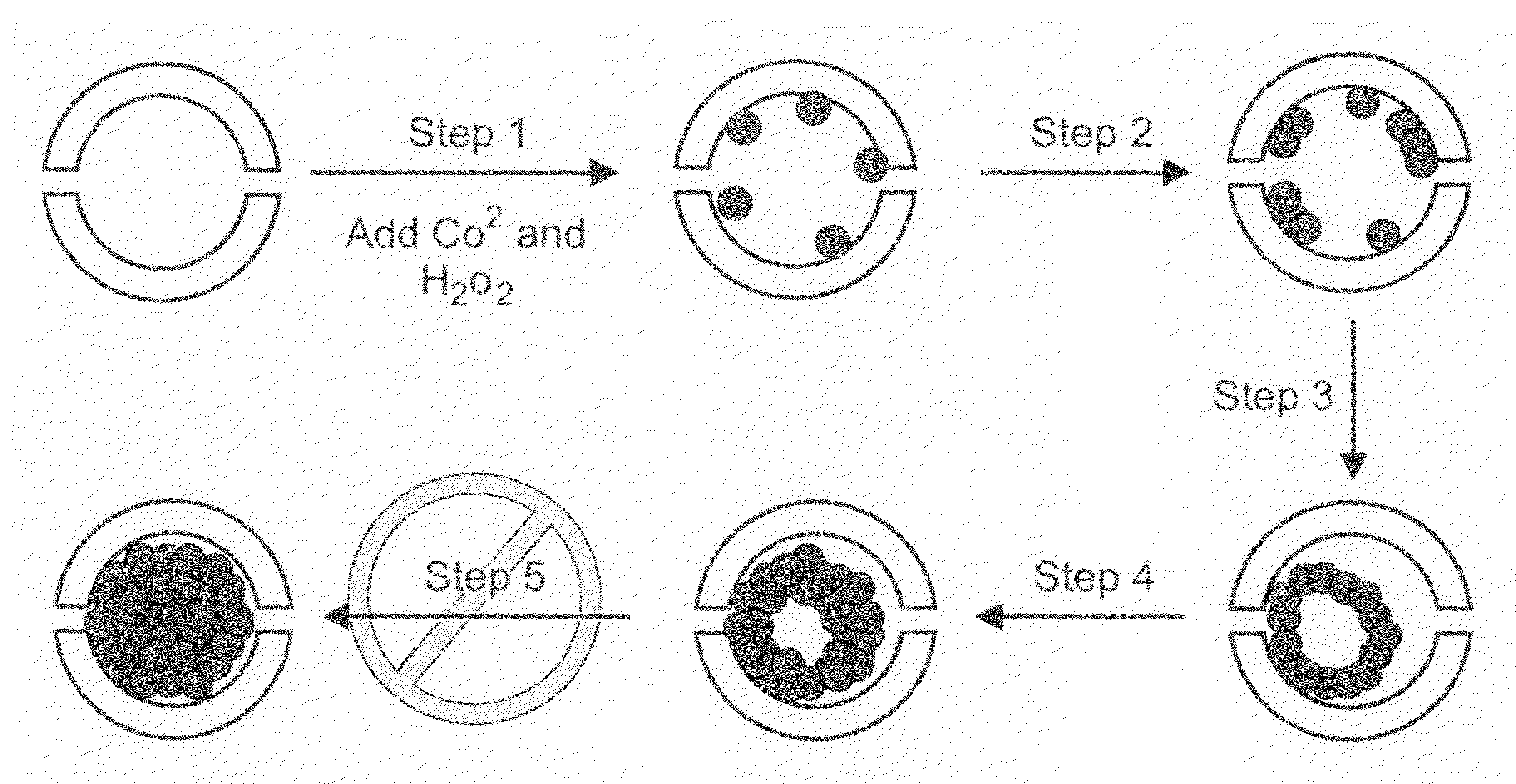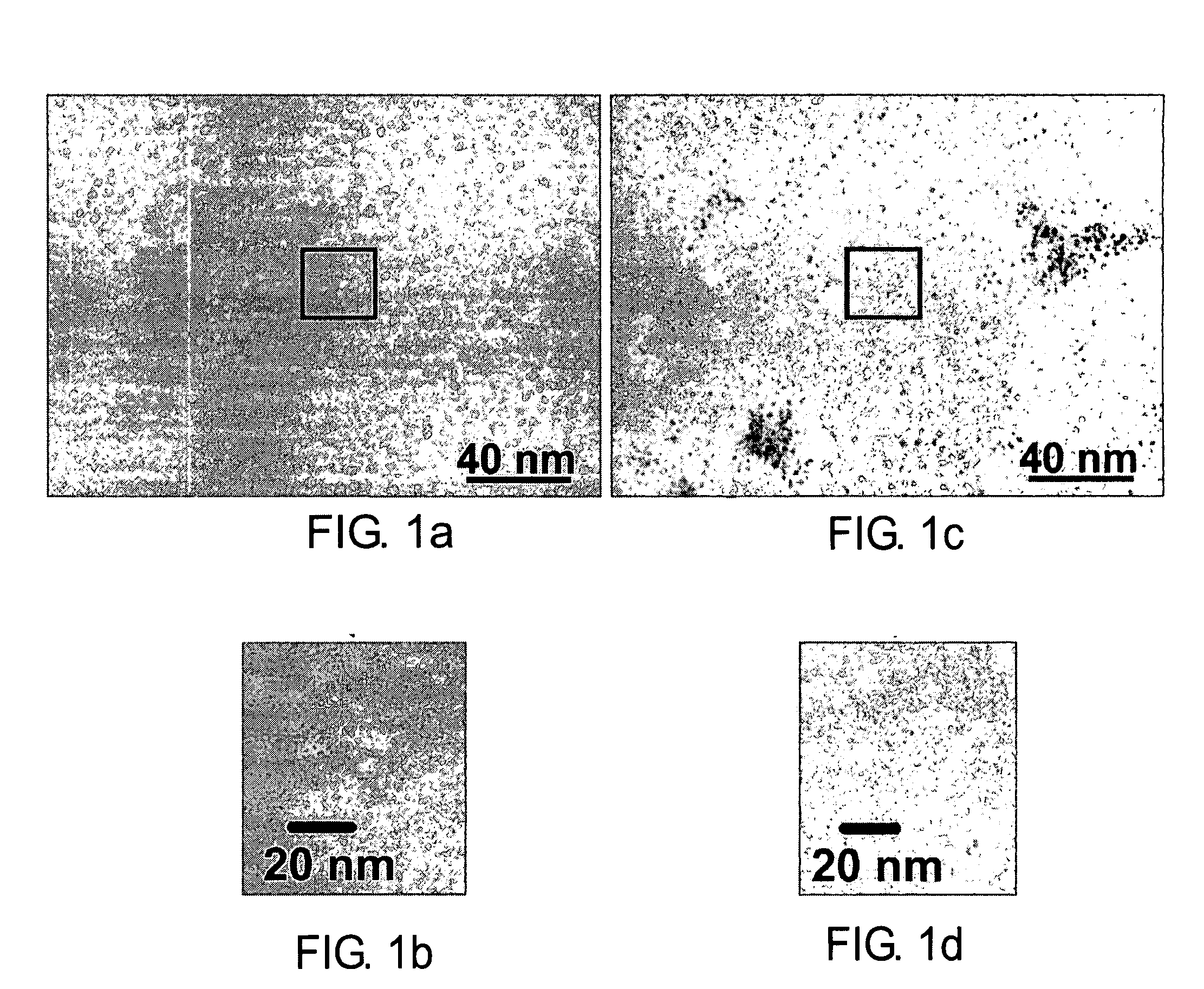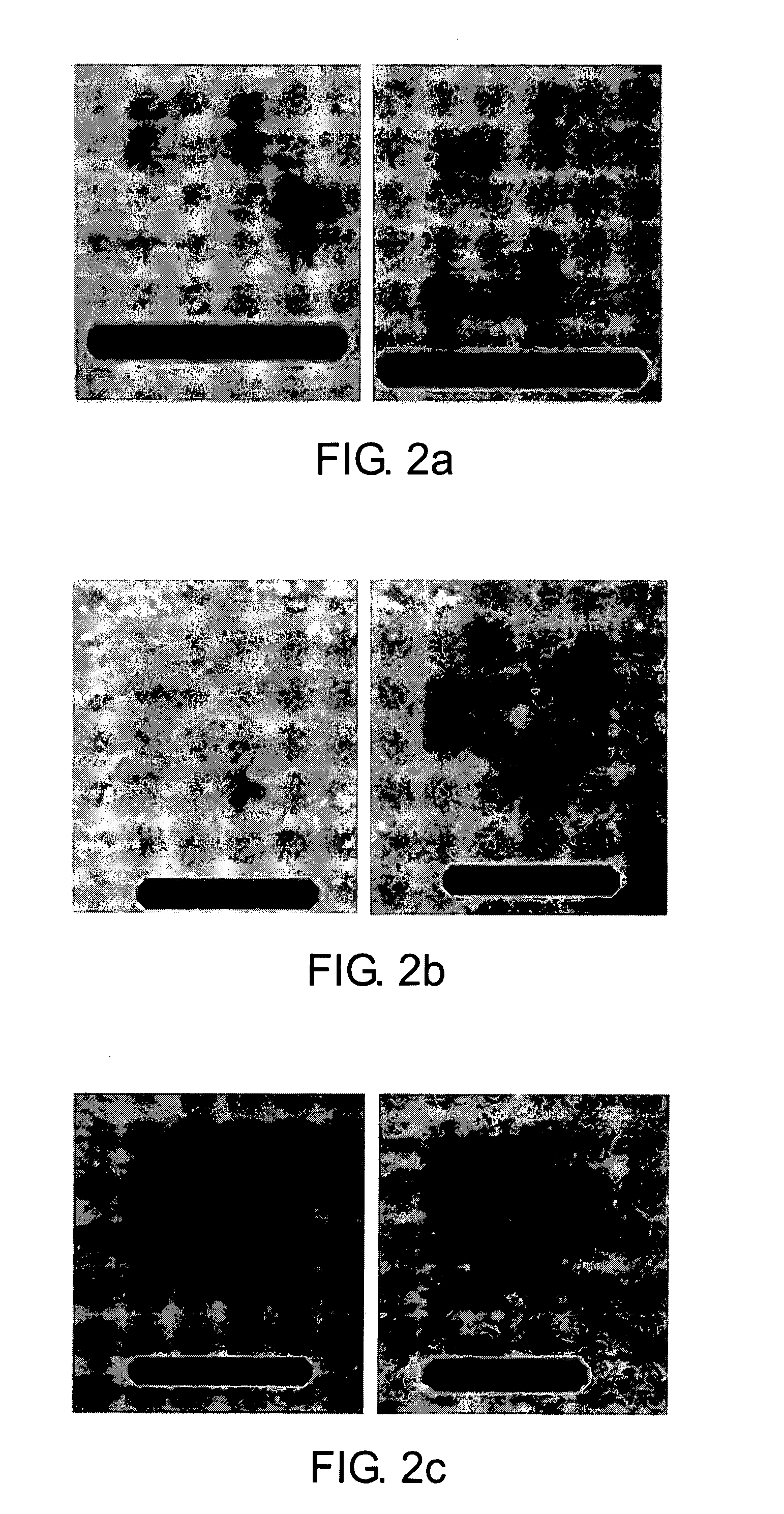Fabrication of metal nanoshells
a metal nanoparticle and shell technology, applied in the field of nanoparticles, can solve the problems of difficult to form complex fabrication process, and generalized problems, and achieve the effect of stable hollow metal nanoparticles
- Summary
- Abstract
- Description
- Claims
- Application Information
AI Technical Summary
Benefits of technology
Problems solved by technology
Method used
Image
Examples
examples
[0027]The following Examples are presented as being illustrative of the present invention, and are not intended to limit its scope.
[0028]ApoHoSF solution (1 mg / ml) was adjusted to a pH 8.5 in 25 mM MOPS buffer with 50 mM NaCl. CoSO4 (50 mM) was used as a cobalt source and gradually added to the ApoHoSF solution, followed by the addition of an excess amount of H2O2 (3 vol. %). The Cobalt was added very slowly and gradually to achieve a certain loading of metal atoms evenly distributed into the ferritin. We reconstituted the ferritins having 200 Co (Co200) to 2000 Co (Co2000) atoms per ferritin in increments of 200 atoms.
[0029]Field emission-scanning electron microscopy (FE-SEM), and FE-SEM equipped with a scanning transmission electron microscopy (STEM, Hitachi S-5200) were used for the characterization of reconstituted Co-cored ferritins. Immobilized Co-cored ferritins on a holey carbon coated copper calibration grid were thoroughly rinsed with doubly distilled, deionized water, dri...
PUM
| Property | Measurement | Unit |
|---|---|---|
| Molar density | aaaaa | aaaaa |
| Molar density | aaaaa | aaaaa |
| Density | aaaaa | aaaaa |
Abstract
Description
Claims
Application Information
 Login to View More
Login to View More - R&D
- Intellectual Property
- Life Sciences
- Materials
- Tech Scout
- Unparalleled Data Quality
- Higher Quality Content
- 60% Fewer Hallucinations
Browse by: Latest US Patents, China's latest patents, Technical Efficacy Thesaurus, Application Domain, Technology Topic, Popular Technical Reports.
© 2025 PatSnap. All rights reserved.Legal|Privacy policy|Modern Slavery Act Transparency Statement|Sitemap|About US| Contact US: help@patsnap.com



